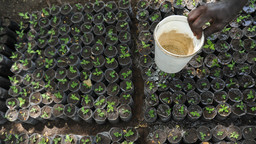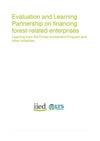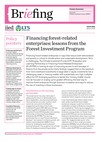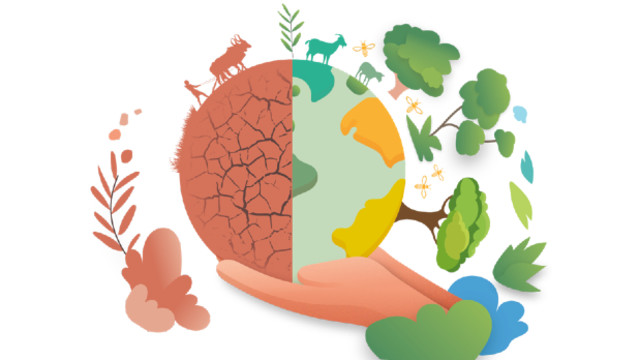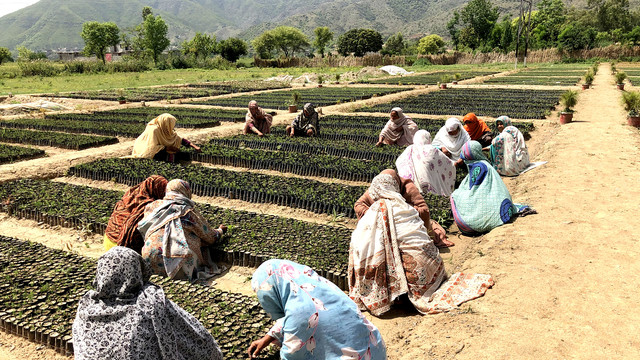Evaluation and Learning Partnership on Financing Forest-Related Enterprises
IIED has partnered with LTS International to carry out an Evaluation and Learning Partnership on Financing Forest-Related Enterprises to generate learning from the Forest Investment Program.
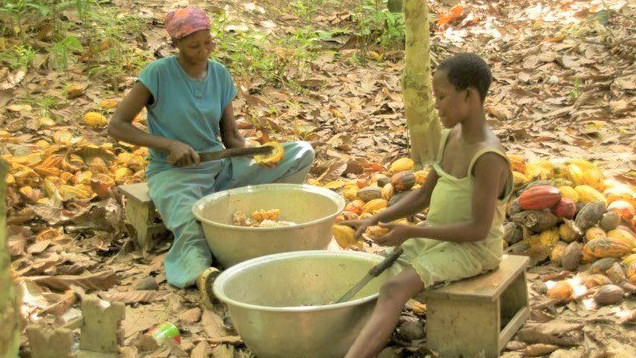
Ghanaian women working in a micro enterprise shell cocoa, one of the commodities driving deforestation in western Ghana. These enterprises need targeted access to finance to adopt sustainable production systems that can contribute to halting deforestation and improving livelihoods (Photo: Tom Blomley)
Better understanding of effective financing strategies, mechanisms and instruments for micro, small, medium and large-scale enterprises can ensure the full and transformational contribution of forests to sustainable development and climate goals. To assist with this, the Climate Investment Funds (CIF) have established an evaluation and learning initiative.
The Evaluation and Learning Partnership on Financing Forest-Related Enterprises aims to analyse the existing investment portfolio of the CIF's Forest Investment Program (FIP) and review which factors resulted in success for selected non-FIP projects.
The lessons learned are expected to help increase the viability and scale of transformative investments in sustainable forest-related enterprises that will enhance livelihoods and address deforestation.
What IIED is doing
The Evaluation and Learning Partnership should engender better understanding of effective financing strategies that can ensure the full contribution of forests to sustainable development and climate goals. Identifying and sharing lessons will enable FIP pilot countries to capitalise on existing knowledge to inform ongoing and planned forest investments. This will be achieved by:
- Designing and conducting evaluations from FIP projects in FIP country case studies
- Conducting a complementary meta-analysis focusing on the effectiveness of private sector engagement
- Facilitating ongoing learning exchange and dialogue with the learning community through existing stakeholder platforms in country and internationally, including online, and
- Producing and distributing learning briefs.
IIED has partnered with LTS International to carry out the Evaluation and Learning Partnership on Financing Forest-Related Enterprises. A reference group comprising of multi-lateral development banks, government representatives, NGO and financing experts provides strategic oversight.
Ghana and Laos have been selected as two country case studies to complement the portfolio review, interviews with FIP and non-FIP stakeholders, and lessons from FIP platforms (such as subcommittee and pilot country meetings).
As part of the learning exchange, IIED organised two webinars in early 2018. The first, titled 'From transient to transformational: investing in the long-term sustainability of forest-related enterprises' took place on 17 January and was attended by representatives from government, the private sector, NGOs and stakeholders from both FIP and non-FIP countries. The webinar is available to watch below and on IIED's YouTube channel.
The second webinar on 29 March will focus on sharing the findings and lessons on enhancing effective and transformational financing mechanisms for forest-related enterprises. This aims to gain wide validation of the results and look more broadly into opportunities for scaling up, replicability, transferability and leveraging additional domestic and international finance.
News and updates
Publications
Additional resources
Webinar video: From transient to transformational: investing in the long-term sustainability of forest-related enterprises, 17 January 2018
Partners
Donors
Climate Investment Funds (CIF), Washington DC
